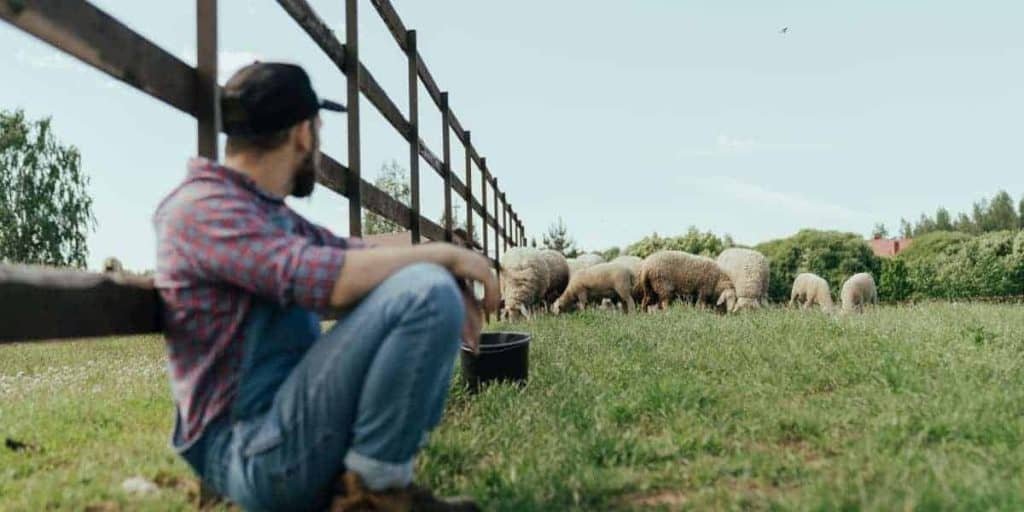The Business Of Urban Farming
When I was growing up, I would spend the weekends with my dad who, when I was very young, worked as a traveling salesman. He took my little brother and me on the road for his weekend trips around southern BC. He’d take us into stores with him and introduce us to his customers, and we’d watch him make deals and shoot the breeze with people from all walks of life.
I remember always being fascinated by all the different and sometimes eccentric characters we met. Later on into my teens, my dad bought a small fish and chips restaurant, and a year or so later expanded in into a couple of nearby towns.
My first job was at 14, working for my dad in his restaurants. I would work at the three different locations as a dishwasher, and he’d take me wherever he went. At a very young age, I got a sense of what it was like to be an entrepreneur, and for this I’m ever grateful to my dad for teaching some fundamental things to me.
Today, I count myself lucky to have been brought up around all that. My dad didn’t have much; when he was running the restaurant, he had far more debt than was manageable. I learned through watching him that if your expenses outweigh your income, you’re in danger. In my dad’s later years, he pursued a dream he had had since he was really young. He became a barber and opened his own tiny shop.
He worked for himself all the way until he retired. He didn’t make tons of money doing this, but he was happy. He felt a sense of purpose with it. I have always admired him for doing exactly the opposite of what society tells us to do: you must grow and expand constantly!

He found happiness by doing the opposite. I see so many farmers struggle because they fail to see their farms as businesses. Often they carry so much ideology with them going in that they think there is only one way to do something, not recognizing that there are some ideas that are universal to all businesses, small farms included.
All my life, my father hammered some basic principles about running a business into my head, and these have helped me beyond measure.
Find your proven business models here
I still hold these as critical to running a business or a farm:
- If your expenses outweigh your income, you need to change something.
- When you say you’re going to do something, you do it. A handshake is a done deal.
- A deal is not a deal unless both parties are absolutely happy with it.
- If you make a mistake with a customer, you make it right by making it better than right.
Starting Small
Many businesses fail in their first couple of years, and one of the main reasons is that they go in with too many overhead expenses.
Farming is no exception to this. In fact, it’s often more common. Unfortunately a lot of farmers in the west, instead of going out of business, just keep operating under credit. In a world of cheap money, this has allowed us to perpetuate many systems that in any other circumstance would be totally unsustainable.
Small overhead and start-up costs are what give the small farmer and urban farmer a huge advantage getting started.
Keeping Costs
Low When you look at the numbers based on the size, my farm is lucrative because my overhead expenses are very low and my start-up was considerably lower than average. The fact that I didn’t have to pay for any land in the beginning was critical to my success.

My transport, input and labor costs were negligible, compared to other businesses operating on the same scale. Transport was cheap because I operated the farm entirely by pedal power when I started, and I still do mostly everything by bike today.
My input costs haven’t really changed much over the years; they are primarily compost that I buy from a local business and an organic-based fertilizer from a BC company. Each bed I plant costs me around $5 in inputs, most of the time less.
Labor has been cheap because I mostly do the major farm work myself. I have some neighbors who help with some specific tasks like tying tomatoes and packing on Friday for market in exchange for veggies. Outside labor works out to be around 10 hours a week from a few people in the neighborhood. It’s a good deal for them, and they enjoy doing the work.
I have employed many people over the years but in the year that was most lucrative, I had one part-time person working 16 hours a week to help with some very specific tasks such as harvesting and washing bunched veggies. I did most of the production work, such as planting, bed rotation and maintenance myself.
Because of the size of the operation, this worked very well. As I have stated before, as you get close to ½ acre, you will most likely need two full-time people to operate the farm, with some extra help on market prep days.
Originally posted 2020-06-14 12:30:42.



